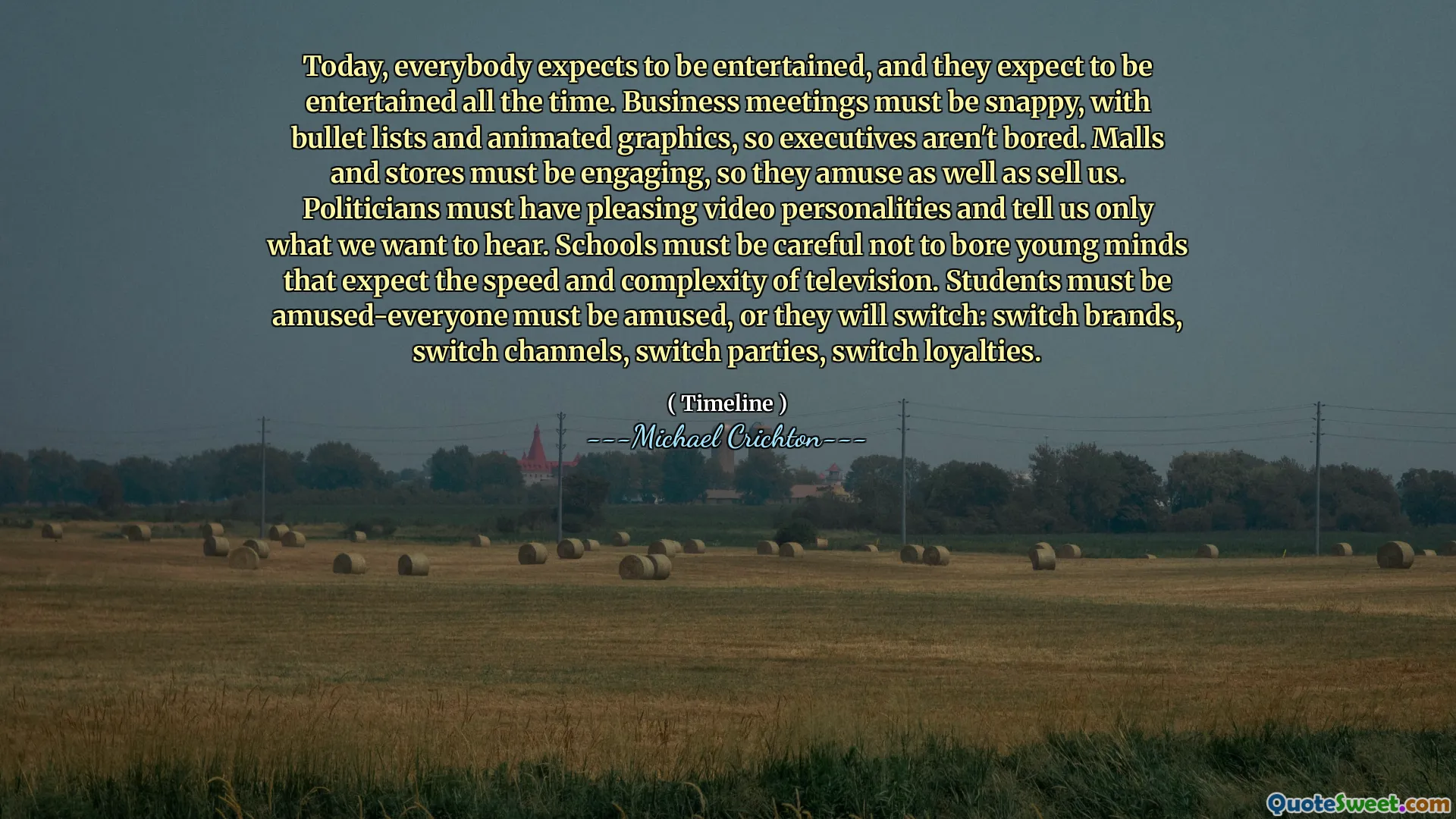
Today, everybody expects to be entertained, and they expect to be entertained all the time. Business meetings must be snappy, with bullet lists and animated graphics, so executives aren't bored. Malls and stores must be engaging, so they amuse as well as sell us. Politicians must have pleasing video personalities and tell us only what we want to hear. Schools must be careful not to bore young minds that expect the speed and complexity of television. Students must be amused-everyone must be amused, or they will switch: switch brands, switch channels, switch parties, switch loyalties.
In today's society, there is an overwhelming expectation for continuous entertainment across various sectors. Business meetings have evolved to prioritize engagement, featuring concise bullet points and dynamic visuals to capture the attention of busy executives. Similarly, retail environments now strive to be enjoyable spaces, blending amusement with consumerism, while political figures focus on charisma and pleasing rhetoric to maintain public interest.
Educational institutions also face pressure to captivate young learners, who have been conditioned by the fast-paced, complex nature of television. As a result, students' focus and loyalty can easily waver, prompting them to switch brands, channels, or even political affiliations if they find the content unengaging. This cultural shift highlights the necessity for constant stimulation and the consequences that arise when expectations are not met.











